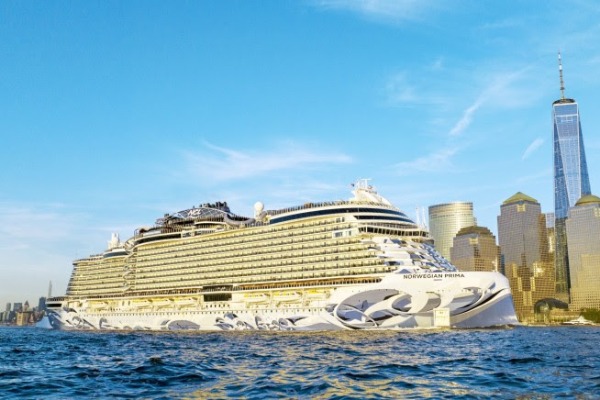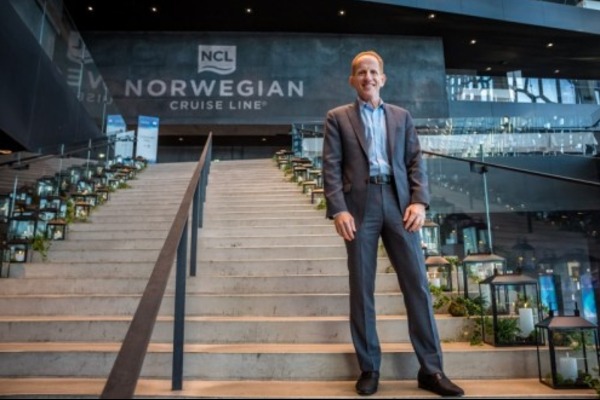NCLH Sets A Course To Net Zero By 2050

Norwegian Cruise Line Holdings Ltd. (NCLH) — which operates Norwegian Cruise Line, Oceania Cruises and Regent Seven Seas Cruises – is setting a course to net zero by 2050 with the launch of its revamped climate action strategy along with short- and near-term greenhouse gas (“GHG”) targets to support that goal. These actions underscore the NCLH’s robust commitment to decarbonization as part of its global sustainability program, Sail & Sustain.
Key components of its new interim GHG reduction targets include:
- Reduce GHG intensity by 10% by 2026 and 25% by 2030, compared to a 2019 baseline with intensity measured on a per Capacity Day1 basis.
- The targets cover the Company’s emissions from its fleet of ships, islands and facilities (Scopes 1 & 2) as well as upstream fuel- and energy-related activities, including well-to-tank emissions (portion of Scope 3). As such, the targets will capture the full well-to-wake emissions impact of the Company’s fuel consumption.
- Interim targets provide a roadmap to support the Company’s existing net zero by 2050 ambition. The scope of this commitment expands to the Company’s entire greenhouse gas footprint, including its vast network of suppliers and partners across its value chain.
Harry Sommer, president and chief executive officer-elect of Norwegian Cruise Line Holdings Ltd., said: “We are proud to further refine and strengthen our climate action strategy and commitments including by setting milestone GHG intensity reduction targets which will guide us on our ambitious pursuit of net zero by 2050.”

Sommer continued: “Every aspect of our business from shoreside to shipboard is responsible for doing their part to design, deliver and demonstrate results for decarbonization and our Board of Directors has reinforced this expectation by establishing shared accountability and tying incentives for our entire management team to this critical effort. We also recently took an important step forward on our pursuit of net zero by announcing the modification of two of our future Prima Class newbuilds to accommodate the use of green methanol in the future.”
He noted that: “We are also activating and mobilizing our full network of team members, ports and destinations, suppliers and partners, and guests to act now and join us on this transformative journey, further amplifying the efforts we could achieve on our own.”
NCLH’s revamped climate action strategy is centered around three pillars: Efficiency, Innovation and Collaboration.
Jessica John, vice president of ESG, Investor Relations and Corporate Communications of Norwegian Cruise Line Holdings Ltd., said: “We are encouraged to see the significant progress and momentum across sectors to decarbonize, but fundamental challenges continue to exist for the cruise industry to fully decarbonize by 2050.”
John said that: “Rather than waiting for these challenges to dissolve, our strategy is about acting now to implement solutions for efficiency today, innovate for future solutions and collaborate with our stakeholders along the way. Underpinning this strategy is good governance and effective risk management as we work to advance our climate action efforts and build our Company’s resilience.”


